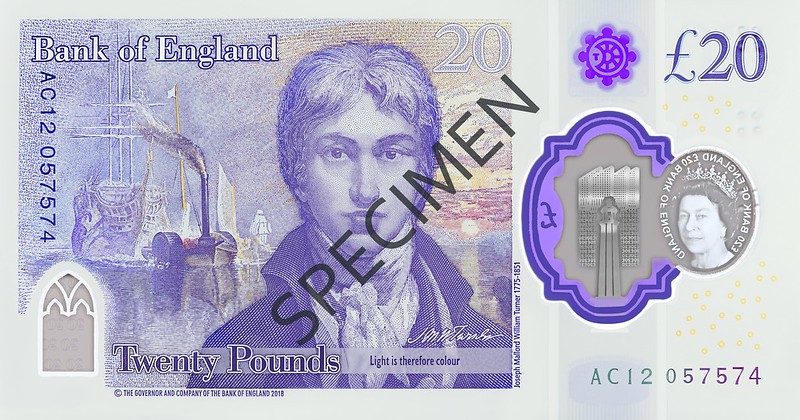Paper £20 & £50 notes to be withdrawn as legal tender

The Bank of England will be withdrawing legal tender status of the paper £20 and £50 notes after 30 September 2022, and we are encouraging anyone who has these at home to spend or deposit them at their bank or Post Office.
There are approximately £7 billion worth of paper £20 and £10.5 billion worth of paper £50 notes still in circulation. As they are returned to the Bank of England, these are being replaced with the new polymer £20 notes featuring J.M.W. Turner, and polymer £50 notes featuring Alan Turing. After 30 September 2022, the new polymer notes will be the only ones with legal tender status.
Once this deadline has passed, people will no longer be able to spend Bank of England paper notes in shops, or use them to pay businesses. People with a UK bank account will still be able to deposit withdrawn notes into their account. Some Post Offices may also accept withdrawn notes as payment for goods and services or as a deposit to an account accessed via them.
The Bank of England will continue to exchange all withdrawn notes.
Speaking ahead of the date, the Bank of England’s Chief Cashier Sarah John said “Over the past few years we have been changing our banknotes from paper to polymer, because these designs are more difficult to counterfeit, whilst also being more durable. A large number of these paper notes have now been returned to us, and replaced with the polymer £20 featuring the artist J.M.W. Turner, and the polymer £50 featuring the scientist Alan Turing. However if members of the public still have any of these paper notes in their possession, they should deposit or spend them whilst they can”.
The new polymer £20 was first issued on 20 February 2020, and the polymer £50 note was first issued on 23 June 2021. These notes complete the Bank of England’s first polymer series. The introduction of polymer banknotes allows for a new generation of security features which make them even harder to counterfeit. The notes are resistant to dirt and moisture and so remain in better condition for longer. These notes also have tactile features that allow the blind and partially sighted to use them.




